2 Likes
#orban
Streit um Ungarn: EU-Rechtsausschuss will EU-Kommission verklagen
Streit um Ungarn - EU-Rechtsausschuss will EU-Kommission verklagen
Juristisch betrachtet geht es um die Frage, auf welcher Grundlage die EU-Kommission zu dem Ergebnis gekommen ist, Gelder für Ungarn wieder freizugeben.#EU #UNGARN #Rechtsstaatlichkeit #Kohäsionsfonds #Orban #VonderLeyen
Streit um Ungarn: EU-Rechtsausschuss will EU-Kommission verklagen
Mass protests in Hungary over child sex abuse scandal
Tens of thousands of people protested in #Budapest on Feb. 16 over a #ChildSexAbuse scandal that has rocked the government of #Hungarian Prime Minister Viktor #Orban and caused a series of resignations.
The wave of discontent arose after it was revealed that President Katalin Novak, who resigned on Feb. 10, pardoned a man convicted of covering up widespread sex abuse at a government-run children's home.
As the backlash has grown, the scandal has expanded beyond the controversial pardon into direct criticism of Orban's government and associated cronyism and corruption.
https://kyivindependent.com/mass-protests-in-hungary-over-child-sex-abuse-scandal/
2 Likes
1 Shares
Pressure on Orban grows amid child sex abuse scandal
Hungarian opposition leaders gathered in front of the prime minister's office on Feb. 15, denouncing Orban's silence on the issue and saying it indicated deeper structural problems within Fidesz.
"Orban's regime has fallen into a moral and political crisis," said Andras Fekete-Gyor of the opposition Momentum party.
As the backlash has grown, the scandal has expanded beyond the controversial pardon into direct criticism of Orban's government and associated #cronyism and corruption.
Former Orban ally and Varga's ex-husband, Peter Magyar, released a widely viewed video on Facebook on Feb. 11 denouncing corruption in #Fidesz and across Hungary.
"It must be said now that this cannot go on," Magyar said, rhetorically questioning whether Hungarians think it is "normal" that "a few families own half the country."
https://kyivindependent.com/pressure-on-orban-grows-amid-child-sex-abuse-scandal/
2 Likes
1 Shares
Leidse hoogleraar: ‘Er is geen enkel vaccin tegen de verspreiding van fascistische neigingen’
Trouw
Geen land is immuun voor fascisten met hun verleidelijke taal, stelt de Leidse hoogleraar Nidesh Lawtoo in zijn boek [Nieuw] fascisme. Hij wijst Wilders aan als zo’n nieuwe fascist. (...)
(Tekst loopt door onder de foto.)
[Lawtoo] zag overeenkomsten tussen Trumps optreden en de manier waarop fascistische leiders in het verleden volksmassa’s opzweepten. Lawtoo schreef een reeks essays om te waarschuwen voor wat hij zag als neofascistische aanvallen op de democratie.
“Een waarschuwing die nog steeds nodig is, en niet alleen in de VS helaas”, concludeert hij mismoedig. Ook in Europa winnen extreemrechtse bewegingen aan populariteit: Rassemblement National (Frankrijk), Lega (Italië), de AfD, en de PVV in eigen land. In [Nieuw] fascisme ontrafelt Lawtoo de ‘verleiding en besmettelijkheid’ van deze politieke stroming. (...)
“Het ‘nieuwe’ slaat vooral op de nieuwe media. Hadden fascistische leiders alleen traditionele nieuwsbronnen als kranten, radio en televisie om hun gewelddadige retoriek te verspreiden, nu vormen internet, sociale media (Facebook, X) en AI een onuitputtelijke bron voor massamanipulatie.” (...)
Plato schreef al over de menselijke neiging om gedrag na te bootsen. Zo vormen we onze gedachten, gedrag en verlangens. De mens is een Homo mimeticus. Deze eeuwenoude intuïtie wordt ondersteund door de ontdekking van spiegelneuronen – de hersencellen die ervoor zorgen dat je mensen in je omgeving imiteert. Het gevolg is dat we als mensen, en zeker als menigte, fundamenteel kneedbaar en vatbaar zijn voor irrationele psychische besmetting.” (...)
“Fascistische leiders zijn bijzonder bedreven in het bespelen van ons mimetisch gemoed. Dat doen ze met retorische strategieën zoals herhalingen, gebruik van beelden, van agressieve emoties en spectaculaire leugens. (...)
“Daar komt bij dat in tijden van crisis en onzekerheid – denk aan de klimaatcrisis, de economische en de woningcrisis – mensen gemakkelijk ten prooi vallen aan de betovering van schadelijke mimetische emoties. (...)
Dat zie je ook in Nederland. De overlast, de woningnood, ineens krijgen migranten de schuld van veel ellende waar mensen onder lijden. Dat zijn gevaarlijke mythes.” (...)
“Gewelddadige en ontmenselijkende taal is ongelooflijk gevaarlijk, omdat het gemakkelijk leidt tot gewelddadige acties. Dat had het historisch fascisme ons moeten leren.” (...)
“Ik wil niet beweren dat onze kritische vermogens helemaal in slaap gesust zijn. Maar nu is wel de tijd om alert te zijn. Extreemrechts wint aan macht in heel Europa. Daar komt bij dat de milieucrisis zal verslechteren met destabiliserende effecten tot gevolg.” (...)
“Er is geen enkel vaccin tegen de verspreiding van fascistische neigingen. Zodra mensen lijden, het moeilijk hebben, is onze rationaliteit simpelweg niet opgewassen tegen de besmettelijkheid van de mythe. Of we het nu willen of niet: we praten elkaar na.
“Toch is er hoop, mits we ons bewust worden van ons nabootsingsgedrag.” (...)
Tags: #nederlands #boeken #fascisme #democratie #Rassemblement_National #Frankrijk #Lega #Italië #AfD #duitsland #nederland #PVV #wilders #le_pen #orban #hongarije #europa #racisme #discriminatie
Trump Allies Plot to Take Over the European Union
The Far Right, the War in Ukraine, and the Future of the Green Deal
Tom Dispatch
It would be funny if it weren’t so potentially tragic — and consequential. No, I’m not thinking about Donald Trump’s 2024 presidential campaign but a related development: the latest decisions from the European Union (EU) about Ukraine.
(Text continues underneath the logo.)
As 2023 ended, European nations failed to agree on a $54-billion package of assistance for Ukraine at a time when that country was desperately trying to stay afloat and continue its fight against Russian occupation forces. Bizarrely, the failure of that proposal coincided with a surprising EU decision to open membership talks with that beleaguered country. (...)
One person, right-wing Hungarian Prime Minister Viktor Orbán, is largely responsible for that contradictory combo. (...) [H]e expects [European Parliamentary elections in early June of this year] to signal a political sea change, with conservative and far-right forces — think of them as Donald Trump’s allies in Europe — replacing the parliament’s current centrist consensus. (...)
Orbán allowed consensus [on EU-membership for Ukraine] to prevail, but only because he knew he still had plenty of time to pull the plug on Ukraine’s bid. (...)
But even if Orbán’s resistance were to be overcome, a larger challenge looms: the European Union that will make the final determination on Ukraine’s membership may not prove to be the same regional body as at present. (...)
In retrospect, the departure of the United Kingdom from the EU in 2020 may prove to have been just a minor speedbump compared to what Europe faces with the war in Ukraine, the recent success of far-right parties in Italy and the Netherlands, and the prospect that, after the next election, a significantly more conservative European Parliament could at the very least slow the roll-out of the European Green Deal. (...)
Although mainstream European parties had historically been reluctant to form governments with the far right, some have now opportunistically chosen to do so. Far-right parties now serve in governments in Sweden and Finland, while leading coalitions in Italy and Slovakia. (...)
Such gestures toward the center have also characterized the strategy of Giorgia Meloni, the head of the far-right Brothers of Italy party, who downplayed its fascist roots and pledged to support both NATO and the EU to win enough centrist backing to become Italy’s current prime minister.
But what happens if there’s no longer a political center that must be wooed?
That’s been the case in Hungary since Viktor Orbán took over as prime minister in 2010. He has systematically dismantled judicial, legislative, and constitutional checks on his power, while simultaneously marginalizing his political opposition. Nor does he have to compromise with the center, since it’s effectively dropped out of Hungarian politics. and he and his allies are eager to export their Hungarian model to the rest of Europe. Worse yet, they’ve got a strong tailwind. In 2024, the far-right is on track to win elections in both Austria and Belgium, while Marine Le Pen’s far-right party leads the polls in France and the equally intemperate, anti-immigrant Alternative fur Deutschland is running a strong second to the center-right in Germany.
No less ominously, the Identity and Democracy bloc, which includes the major French and German far-right parties, is projected to gain more than two dozen seats in the European parliamentary elections this June. (...)
Russian President Vladimir Putin has long wanted to undercut European unity as part of an effort to divide the West. With that in mind, he forged alliances with far-right political parties like Italy’s Lega and Austria’s Freedom Party to sow havoc in European politics. His careful cultivation of Orbán has made Hungary functionally his country’s European proxy. (...)
[O]n one key issue [Europe’s right wing parties are] now converging. They used to disagree on whether to support leaving the EU, Brexit-style, or staying to fight. Now, they largely favor a take-over-from-within strategy. And to make that happen, they’ve coalesced around two key issues: the strengthening of “Fortress Europe” to keep out those fleeing the Global South and frontally assaulting that cornerstone of recent EU policy, the Green energy transition. (...)
A report from the Center for American Progress concludes that European far-right groups “frame environmental policies as elitist while stoking economic anxiety and nationalism, which erodes trust in democratic institutions and further distracts from genuine environmental concerns.” Researchers from the University of Bergen in Norway are even more pointed: “Populist far-right parties portray fossil fuel phase-out as a threat to traditional family values, regional identity, and national sovereignty.” (...)
Worse yet, the backlash against Europe’s Green turn has expanded to efforts in the European Parliament to block pesticide reduction and weaken legislation on the reduction of packaging. (...)
From Vladimir Putin in the Kremlin to Marine Le Pen at the reactionary barricades in Paris, the far right is fighting over the very future of European ideals. (...)
But Orbán and his allies have a far more radical mission in mind: to transform European identity. (...)
In other words, the EU is still a beacon for progressives around the world (notwithstanding the neoliberal reforms that are regressively remaking its economic space). (...)
Even as the EU contemplates expansion eastward, a revolt from within threatens to bring about the end of Europe itself — the end, that is, of the liberal and tolerant social welfare state, of a collective commitment to economic solidarity, and of its leading role in addressing climate change. The battle between a democratic Ukraine and the autocratic Russian petrostate is, in other words, intimately connected to the conflicts being waged in Brussels. (...)
Without a powerful left defending Europe’s gold-standard social safety nets, libertarians are likely to advance their attempts to eat away at or eliminate the regulatory state. Without Europe’s lead, global efforts to address climate change will grow dangerously more diffuse.
Sound familiar? That’s also the agenda of the far-right in the United States, led by Donald Trump. (...)
Tags: #eu #european_union #ukraine #russia #far_right #green_deal #hungary #orban #poland #italy #meloni #germany #france #lepen #netherlands #wilders
One person like that
European Parliament to vote on resolution stripping Hungary of EU voting rights on Jan. 18
The European Parliament will vote later this week on a resolution that calls for stripping Hungary of its voting rights at the European Council, MEP Petri Sarvamaa said
Earlier this month, Sarvamaa launched a petition to remove some of #Budapest's membership rights, including voting, due to the country's "erosion of the rule of law" and obstructive behavior in the face of EU #consensus building.
https://kyivindependent.com/european-parliament-to-vote-on-stripping-hungary-of-eu-voting-rights/
#Hungary #EU #UkraineAid #EU #Orban #law #EuropeanUnion #VotingRights
3 Likes
Das #THW beklauen …
… zeugt auch nicht gerade von #Intelligenz.
https://www.presseportal.de/blaulicht/pm/148638/5684822
Allerdings habe ich so langsam auch keinen #Bock mehr auf diese #Menschheit. Das Problem:
In den 30ern hatte man ja theoretisch die #Chance, in ein #Land mit vernünftiger, demokratischer #Regierung zu flüchten, aber Heute?
Irgend wie sind sie alle voll auf der rechten #Spur, ignorieren massiv die #Wissenschaft und sind erstaunt wenn die #Natur dieser dann Recht gibt!
#CDU #CSU #FDP #Grüne #AFD #Trump #Milei #Orban #Putin #Netanjahu #undalldiedoofenTerroristen
6 Likes
5 Comments
1 Shares
Ukraine 'still waiting for answer' from Orban on why Ukraine should not join EU
Hungarian Prime Minister Viktor Orban did not give President Volodymyr Zelensky an answer when asked why Budapest wants to block Ukraine's entry into the EU, Zelensky said at the Nordic-Ukraine Summit in Oslo on Dec. 13.
"I asked him to tell me one reason, not three, five, 10, tell me one reason" as to why talks should not begin, Zelensky said at the press conference in Oslo. "I'm still waiting for (an) answer."
https://kyivindependent.com/zelensky-still-waiting-for-answer/
#Ukraine #EU #Hungary #Orban #Budapest #RussiaInvadedUkraine #StopRussianAggression #RussiaUkraineWar
3 Likes
2 Shares
EU-Abgeordneter Freund: EU darf sich nicht erpressen lassen
Vor EU-Gipfel - EU-Abgeordneter Freund: EU darf sich nicht erpressen lassen
Beim anstehenden EU-Gipfel wolle Ungarns Ministerpräsident Viktor Orban die Arbeit Putins erledigen, sagt Daniel Freund (Grüne). Die EU müsse das verhindern.#EU-Gipfel #Ukraine #Ungarn #Orban #Korruption #Russland #Krieg
EU-Abgeordneter Freund: EU darf sich nicht erpressen lassen
EU-Ratspräsident Michel will Orbán einhegen
Ungarn und die EU - EU-Ratspräsident Michel will Orbán einhegen
Der ungarische Regierungschef Orbán droht, die Ukraine-Politik der EU zu blockieren. EU-Ratspräsident Michel will ihn bei einem Budapest-Besuch davon abhalten.#Ungarn #Orban #Michel #EU #Brüssel #Ukraine
EU-Ratspräsident Michel will Orbán einhegen
Rechtspopulismus in Europa
Rechtsruck in Europa - Rechtsaußen-Parteien gewinnen an Einfluss
Überraschungssieg in den Niederlanden, Regierungsmacht in Italien, Stimmengewinne bei Wahlen: Europas Rechtspopulisten sind in vielen Ländern erfolgreich.#Rechtsextremismus #Rechtspopulimus #Rechtsaußen #Europa #Meloni #Orban #Wilders
Rechtspopulismus in Europa
One person like that
1 Comments
4 Likes
Le grand continent
Giorgia Meloni au Sommet de la démographie de Viktor Orbán : faire l’Europe par la famille ?
De Rome à Budapest, partout sur le continent, les droites illibérales cherchent à façonner le futur de l’Europe. Dans l’angoisse démographique, il se construit pour eux à l’échelle familiale — avec une solution et un mot d’ordre simples : faire plus d’enfants européens. Pour la première fois en français, nous traduisons et commentons ligne à ligne le discours prononcé par Giorgia Meloni au sommet de la démographie à Budapest.
https://legrandcontinent.eu/fr/2023/09/15/faire-leurope-par-la-famille-le-projet-de-giorgia-meloni-a-budapest/
#Italie #Meloni #Orban #extremedroite
« Un moment très dangereux » : Viktor Orban avertit Tucker Carlson qu’une « Troisième guerre mondiale frappe à la porte »
Franck Pengam (Géopolitique Profonde)
Viktor Orbán a également appelé de ses vœux le retour de l’ancien président américain Trump
Lors de la récente visite de Tucker Carlson à Budapest, où il a prononcé un discours présentant ses excuses pour le comportement « dégoûtant » de l’ambassadeur des États-Unis en Hongrie, l’ancien présentateur de Fox News s’est entretenu avec le Premier ministre hongrois Viktor Orbán.
Orbán, le plus ancien premier ministre hongrois, connaît bien la Russie (il a grandi sous son occupation et a été arrêté et jeté en prison par la police soutenue par les Russes pour ses efforts de libération du pays) et l’Ukraine (pays avec lequel il partage une frontière).
Tucker s’est donc assis pour lui demander ce qui se passe exactement en Ukraine en ce moment (étant donné l’opacité propagandiste des informations en Amérique).
L’interview complète est disponible ci-dessous :
🔴 Tucker Carlson et Victor Orban, entretien complet.#TuckerCarlson #Orban pic.twitter.com/CSTmLts0Vs
— Péonia (@CalliFanciulla) August 31, 2023
« Ce n’est pas seulement un malentendu, c’est un mensonge », commence M. Orban, interrogé sur le fait que les médias américains continuent d’ affirmer que « l’Ukraine est en train de gagner la guerre ».
Il suggère que l’administration Biden comprend mal la Russie et qu’une tentative de destitution de Poutine pourrait conduire à une instabilité dangereuse.
« Il est difficile de comprendre les Russes, surtout si un océan les sépare de la Russie. »
M. Orbán souligne que les conversations politiques occidentales sont souvent axées sur la liberté, tandis que les conversations russes se concentrent sur le maintien de l’unité du pays, et met en garde contre les implications dangereuses de la stratégie américaine, en particulier pour des pays comme la Hongrie qui sont géographiquement plus proches du conflit.
« Ne vous méprenez pas sur les Russes. Ils ne vont pas en avoir assez de Poutine et le mettre à la porte, c’est une blague. »
Il critique la vice-présidente Kamala Harris pour avoir suggéré que l’Ukraine pourrait rejoindre l’OTAN, estimant qu’il s’agit d’une proposition irréaliste qui a provoqué une escalade des tensions.
Le Premier ministre hongrois préconise plutôt une nouvelle architecture de sécurité qui respecte la souveraineté de l’Ukraine, mais n’inclut pas l’adhésion à l’OTAN.
Apparemment pour son refus d’acquiescer à tous les points de discussion fournis par Washington, et au contraire pour sa volonté de donner la priorité au peuple de son pays – et à ses besoins énergétiques et alimentaires – Orbán a été qualifié de « fasciste » à de nombreuses reprises par les médias occidentaux, de « marionnette de Poutine » et d’« ami de la Russie ».
M. Carlson a demandé à M. Orbán s’il craignait d’être « écrasé par les États-Unis ».
« C’est dangereux », répond le Premier ministre hongrois, qui reconnaît :
« Je ne suis pas le politicien préféré des libéraux, mais personne n’est parfait. »
Mais il ajoute qu’il s’en moque parce qu’il y a des valeurs plus importantes à respecter pour maintenir une société civile :
« Il y a des choses qui sont plus importantes que moi, que mon ego : la famille, la nation, Dieu. »
« Être hongrois, c’est en être très fier. Nous aimons la nation, nous aimons le pays et nous en sommes fiers. Ce n’est pas tout à fait la pensée dominante, la pensée politique d’une société occidentale.«
« Mais en Hongrie, nous sommes toujours très patriotes et chrétiens et attachés à ces valeurs. Pas à un niveau idéologique, mais dans la rue tous les jours. »
Illustration.Viktor Orbán en 2017/Wikipédia
L’approche hongroise est simple :
« Washington est loin, la Russie et l’Ukraine sont proches », explique-t-il, soulignant que les décisions prises aux États-Unis peuvent avoir des répercussions immédiates sur son pays.
« Je réponds que c’est dangereux. »
« Nous ne devrions donc pas négliger l’importance de ce fait et lorsque les États-Unis et cette administration ne vous aiment pas, ou vous considèrent comme un ennemi ou comme ayant un retour en arrière, c’est dangereux en politique internationale. »
Réfléchissant à la position de l’OTAN dans la guerre en Ukraine, Orbán s’exclame :
« C’est une mauvaise stratégie, nous devons y mettre fin », ajoutant :
« Nous ne pouvons pas battre [les Russes], nous ne tuerons pas leur chef, ils n’abandonneront jamais, ils investiront davantage. »
« Ce qui comptera finalement, ce sont les bottes sur le terrain, et les Russes sont bien plus forts. »
Orbán commet ensuite l’erreur ultime parmi les dirigeants mondiaux, il fait l’éloge de l’ancien président américain Trump :
💥🇫🇷VF : Viktor Orbán, Premier ministre de Hongrie, à propos de ce qu'il ferait s'il était aux commandes de l'OTAN :
"La paix immédiatement. Rappeler Trump".
Orbán sait que Trump peut et va empêcher une véritable Troisième Guerre mondiale. pic.twitter.com/HaGsDjafZv
— QUANTUM LEAP TRADUCTION (@QuantumLeapTrad) August 30, 2023
« Rappelez Trump. C’est la seule façon de s’en sortir. Rappelez Trump », déclare M. Orbán.
« Parce que vous savez, on peut le critiquer pour de nombreuses raisons.
Je comprends toutes les discussions. Mais c’est à lui que l’on doit la meilleure politique étrangère de ces dernières décennies. »
« Il n’a pas déclenché de nouvelle guerre. Il a traité gentiment les Nord-Coréens et la Russie, et même les Chinois. »
« Vous savez, il a mis en place une politique qui était la meilleure pour le Moyen-Orient, les accords d’Abraham. Il a donc mené une très bonne politique étrangère. »
« Il est critiqué parce qu’il ne serait pas assez éduqué pour comprendre la politique étrangère. Ce n’est pas le cas », a déclaré M. Orbán à M. Carlson.
« Les faits comptent et sa politique étrangère était la meilleure pour le monde que j’ai vue ces dernières décennies. »
« Et s’il avait été président au moment où l’invasion russe a commencé, non, les Russes n’auraient pas pu faire cela. »
« Trump est donc l’homme qui sauvera le monde et probablement aussi les êtres humains dans le monde. »
En outre, commentant le fait que le gouvernement américain inculpe actuellement l’ancien président, le dirigeant hongrois fronce les sourcils et déclare :
« …Utiliser le système judiciaire contre un opposant politique… en Hongrie, c’est impossible à imaginer… cela a été fait par les communistes. »
Son avertissement le plus inquiétant arrive en dernier :
« Nous vivons un moment très dangereux », conclut-il, ajoutant qu’il devrait être évident pour tout le monde que « la troisième guerre mondiale frappe à notre porte ».
Source : Zero Hedge
Via Géopolitique-Profonde
3 Likes
1 Comments
1 Shares
Europe’s lurch to the right rolls on. Only unity on the left can stop it
The Guardian
Recent polls in Italy, Spain, Greece, Turkey and Finland tell the story of voters swayed by fear and prejudice. Progressive parties – take note Keir Starmer – need a clear, principled agenda to turn that tide.
Why does the left keep losing? It’s not a question liberals and progressives particularly want to confront, but look around. Reactionary parties of the political right and far right are once more on the rise and on the march across Europe, as shown again by last week’s lopsided election results in Spain and Italy.
(Text continues underneath the photo.)
Spanish prime minister Pedro Sánchez has called a snap general election in July after crushing polls setbacks in the country’s regions and cities last weekend. Photograph: Dumitru Doru/EPA.
Each country is different, its circumstances unique. Yet a broad pattern is discernible – and it’s not difficult to trace. The banal common denominator is that parties of the European left, hard and soft, are too fractured and fractious to build winning coalitions that offer convincing alternative solutions to voters’ problems. (...)
It’s not as though rightwing conservatives, populists, nationalists and assorted radicals and extremists have all the answers. Anything but! (...)
How may this Europe-wide tendency be reversed? Maybe resurrection for the left will be found in the example of Pedro Sánchez, Spain’s prime minister and Socialist Workers’ party (PSOE) leader. (...)
In trying to rally the left, Sánchez seeks to expose his opponents’ divisiveness and hate-mongering. An alternative approach to neutralising the right is to absorb it – as attempted last month by Kemal Kılıçdaroğlu, the Turkish opposition’s presidential candidate. (...)
The radical right’s resilience should ring alarm bells in Britain, too, which, despite itself, is not immune to European trends. By shifting rightwards in hopes of winning power in 2024, Starmer’s Labour risks empowering its opponents. Better to draw a line like Sánchez, Spain’s socialist leader, then set one’s own agenda, offer a clear choice and trust voters to decide. It’s not that complicated. Unity, plus well-defined, principled policy programmes, is the way the left stops losing – and learns to win again.
Tags: #politics #elections #far-right #spain #greece #turkey #finland #france #italy #hungary #uk #united_kingdom #labour_party #starmer #keir_starmer #Giorgia_Meloni #meloni #Europe #Pedro_Sánchez #Viktor_Orbán #orban #Recep_Tayyip_Erdoğan #erdogan #mitsotakis
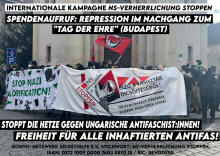
Spendenaufruf: Solidarität mit den Genoss:innen in Budapest
Die Kampagne „NS-Verherrlichung stoppen!“ sammelt Geld für die von Repression betroffenen Genoss:innen im Nachklang der erfolgreichen Proteste gegen den „Tag der Ehre“.
Der diesjährige NS-glorifizierende „Tag der Ehre“ in #Budapest #Ungarn, war geprägt von einer zunehmenden #Repression seitens der ungarischen und deutschen #Polizei. Das Vorgehen der ungarischen Behörden steht im Kontext der erfolgreichen Mobilisierung durch #Antifas in den letzten Jahren. Es ist für #Nazis nicht mehr möglich, ihr ritualisiertes Gedenken in der Budapester Innenstadt abzuhalten.
Im Rahmen der Gegenaktivitäten kam es zu #Festnahmen von vier Antifaschist:innen.
Aktuell befinden sich noch 2 von ihnen ohne Vorliegen konkreter Beweise in U-Haft, eine weitere Person wurde gegen Auflagen aus der Haft entlassen.
Nach der Veröffentlichung eines Videos, das einen Angriff auf eine Person in Tarnkleidung dokumentiert, kam es zu unterschiedlichen Maßnahmen gegen Antifaschist:innen, die nach Budapest gefahren waren, um international gegen den größten #Naziaufmarsch Europas zu demonstrieren.
Die #Kriminalisierung richtete sich zunächst gegen Teilnehmer:innen der jährlichen internationalen #Antifa -Kundgebung gegen das faschistische Gedenken dem sog. „Tag der Ehre“. Zum ersten Mal in der langjährigen Geschichte der #Gegenproteste wurden ca. 150 Teilnehmer:innen eingekesselt und es gab mehrfach Versuche durch ungarische Bullen an Handydaten zugelangen. Bei einem Großteil der Gegendemonstrant:innen wurden Personalien aufgenommen und die Gesichter abfotografiert. Es ist zu befürchten, dass es in den kommenden Jahren verstärkt Ausreiseuntersagungen für Menschen, die an den Protesten gegen den „Tag der Ehre“ teilgenommen haben, geben wird. Bereits in diesem Jahr wurde versucht einige unliebsame Journalist:innen an der Ausreise zu hindern.
Das Video wurde ferner zum Anlass genommen, um eine beispiellose Medienhysterie in Ungarn vom Zaun zu brechen, die sich gegen Antifas und #Linke richtet. Die BILD-Zeitung veröffentlichte am 13.2. die Namen von den Gefangenen und weiteren Verdächtigen, was zu Öffentlichkeitsfahndungen führte. Zahlreiche faschistische Gruppen und #Orban -nahe Medien beteiligten sich an Outings von Antifas. Medien und Politik nutzen den Vorgang für eine Debatte um ein Verbot antifaschistischer Organisationen. Die Lage ist vor allem für unsere ungarischen Genoss:innen ernst und es braucht internationale #Solidarität.
Gleiches gilt selbstverständlich auch für die #Gefangenen und Betroffenen der Öffentlichkeitsfahndungen. Wir brauchen einen langen Atem und müssen uns auch künftig auf Repression durch deutsche und ungarische Bullen einstellen. Die #Hausdurchsuchungen in Berlin und die Bildung einer über 40-köpfigen Sonderkommission in Budapest sind Vorboten einer größeren #Repressionswelle. Dieser #Repression müssen wir uns entschlossen entgegenstellen!
Unterstützen könnt ihr mit einer Spende. Das Geld geht direkt an Betroffene von Repression.
Konto:
Netzwerk Selbsthilfe e.V.
Stichwort: NS-Verherrlichung stoppen
IBAN: DE12 1009 0000 7403 8870 18
BIC: BEVODEBB
https://de.indymedia.org/node/264481

13.02.2023 Keine EU Gelder mehr an Ungarn!
Das Schloss vom Ministerpräsidentenhund
Zwischen dem Ibiza-Skandal-Land Österreich und der Ukraine, in der Rangliste der Korruption auf Platz 122 von 180, liegt die Nr. 1 bei der Korruption in der EU. Anja Jardine hat das System Fidesz in einem langen lesenswerten Bericht auf nzz.ch detailliert auseinander genommen. Angefangen bei der Schulzeit des Victor Orban auf dem Dorf bis zur perfekt organisierten Korruption im 2. Anlauf.
Die erste Amtszeit der Fidesz Partei konnte noch durch die Menschen in Ungarn durch die Wahl 2002 beendet werden. Im 2. Anlauf war die Partei viel geschickter, so dass die Opposition jetzt nur noch eine Alibifunktion haben kann, ohne irgend einen Einfluss auf die inzwischen gleichgeschalteten Medien. Weiterhin ist Kritik erlaubt, dringt aber nicht mehr an die Öffentlichkeit. Die Kritiker werden mundtot gemacht, in dem ihnen die Lebensgrundlage entzogen wird.
Von Amtszeit zu Amtszeit werden die Kandidaten der Fidesz vom Ministerpräsidenten selbst erneut handverlesen. Nur wer sein "Casting" übersteht, kommt auf die Wahlliste. Und wer dann einen Posten bekommt, der hat dann auch ausgesorgt.
Zurück zum Ministerpräsidentenhund
Das System funktioniert inzwischen so gut, dass die angehäuften Reichtümer kaum sichtbar werden. So lässt sich der Besitzer des denkmalgeschützten ehemaligen Landsitz des Erzherzogs Joseph nur als Victor Orban identifizieren, weil sein Hund für die Hundesteuer dort gemeldet ist. Die Besitztümer sind so groß, dass man ihnen von außen weder ansieht, was dort gebaut wurde, noch wer dort residiert. Das Überfliegen von Privatbesitz mit Drohnen wurde vorsichtshalber unter Strafe gestellt.
Für alle Details empfehlen wir das Lesen des Berichts von Anja Jardine. Es geht um perfekt organisierte Korruption, die sie so beschreibt:
- 2,5 bis 5 Milliarden Euro werden jährlich von der EU überwiesen, etwa 3% des BIP.
- Ohne dieses Geld wäre die Wirtschaft längs zusammengebrochen.
- Zwischen 2005 und 2021 gehen etwa 20% des Wertes aller öffentlichen Aufträge – die grundsätzlich zur Hälfte aus EU-Mitteln gedeckt werden – an 12 regierungsnahe Personen, Verwandtschaft und ein kleiner enger Freundeskreis.
- 2018 forderte Orban sämtliche Oligarchen, die im Besitz von Medien waren, auf, diese einer Stiftung zu übertragen, insgesamt mehr als 400 Titel, die heute zentral gelenkt werden. Zusammen mit den Staatsmedien verbreiten diese etwa 80% aller Medien das Orbansche Weltbild.
- u.v.m.
Lesen! - und darüber nachdenken, warum der Bundesrat mit seinen CDU/CSU Vertretern z.Zt. auch bei uns das gerade vom Bundestag beschlossene Whistleblower Gesetz blockiert ...
Mehr dazu bei https://www.nzz.ch/gesellschaft/koenig-orbans-reich-ld.1723532
Kategorie[21]: Unsere Themen in der Presse Short-Link dieser Seite: a-fsa.de/d/3sr
Link zu dieser Seite: https://www.aktion-freiheitstattangst.org/de/articles/8304-20230213-keine-eu-gelder-mehr-an-ungarn.htm
Link im Tor-Netzwerk: http://a6pdp5vmmw4zm5tifrc3qo2pyz7mvnk4zzimpesnckvzinubzmioddad.onion/de/articles/8304-20230213-keine-eu-gelder-mehr-an-ungarn.htm
Tags: #Korruption #EU #Ungarn #Österreich #Ukraine #Fidesz #Orban #Medien #Diskriminierung #Ungleichbehandlung #Meinungsmonopol #Meinungsfreiheit #Pressefreiheit #Gewerkschaft #Mitbestimmung #Koalitionsfreiheit #Berufsverbote #Zensur #Transparenz #Informationsfreiheit #Bestechung
2 Likes
De macht van de dictator is óók de macht van de straat
Caroline de Gruyter (NRC)
(...) „Autoritaire regimes zijn onverslaanbaar, totdat ze dat ineens niet meer zijn. De geschiedenis is bezaaid met afgezette keizers en tsaren”, schreef oud-Financial Times-commentator Philip Stephens deze week in een blog onder de hoopvolle titel ‘Een slecht jaar voor autocraten. Xi en Poetin zijn de grote verliezers van 2022’.
Stephens heeft gelijk: we moeten de kop niet laten hangen. Toch moeten we ons evenmin illusies maken over volksprotesten en wat die anno 2022 kunnen uitrichten. Moderne autocraten laten zich minder makkelijk uit het pluche jagen dan de generaties voor hen. (...)
(Tekst loopt door onder de foto.)
De dictators van nu zijn gelikter. Ze proberen populair te blijven onder de bevolking. Ze doen amper nog aan massamoorden en maaien demonstranten niet meer voor CNN-camera’s neer, maar lichten hen achteraf stilletjes van het bed of produceren ‘bewijs’ van een zedendelict. En ze houden referenda en opiniepeilingen, en chatten met burgers. Door die democratische façade rennen buitenlandse investeerders niet weg, waardoor de economie blijft draaien en burgers brood op de plank houden. (...)
Omdat dictators de meeste media dankzij moderne technologie compleet in hun zak hebben, bepalen ze goeddeels wat mensen lezen of zien. (...)
Volgens onderzoekers aan Harvard is de kans van slagen van straatopstanden onder dit nieuwe type machthebber zesmaal kleiner dan in 2000. Ook werd volksprotest vroeger langzaam, vanaf de grond, opgebouwd. Dat bevorderde cohesie en solidariteit. Nu worden demonstranten via sociale media gemobiliseerd. De clubgeest is zwakker. Straatprotest verpietert sneller. Bovendien gebruiken de autoriteiten tegenwoordig óók geavanceerde technologie voor propaganda, infiltratie en intimidatie. Niet alleen Polen en Hongarije bespioneren opponenten met Pegasus-software, maar zelfs Griekenland en Spanje – al zeggen ze stug dat ze van niets weten. We leven in een tijd van „digitaal autoritarisme”, aldus het Harvard-onderzoek. (...)
Tags: #nederlands #protest #straatprotest #opstand #revolutie #dictator #staat #staatsmacht #sociale_media #social_media #media #propaganda #censuur #volksopstand #hongarije #orban #iran #china #polen #referendum #opiniepeiling #democratie #investeringen #buitenlandse_investeringen #electorale_autocratie #digitaal_autoritarisme #brazilie #bolsonaro #vs #verenigds_staten #trump #griekenland #spanje #pegasus #pegasus_software #spionagesoftware #repressie
1 Comments
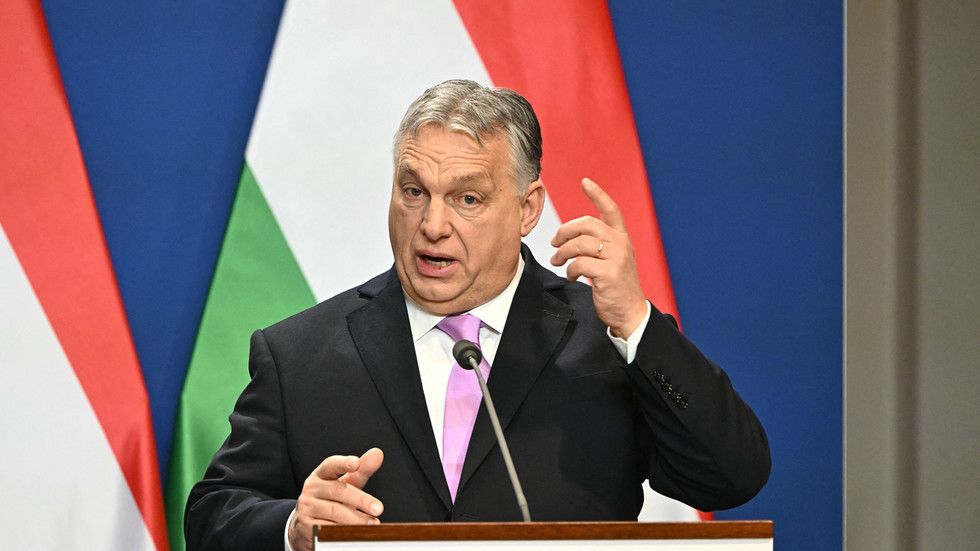
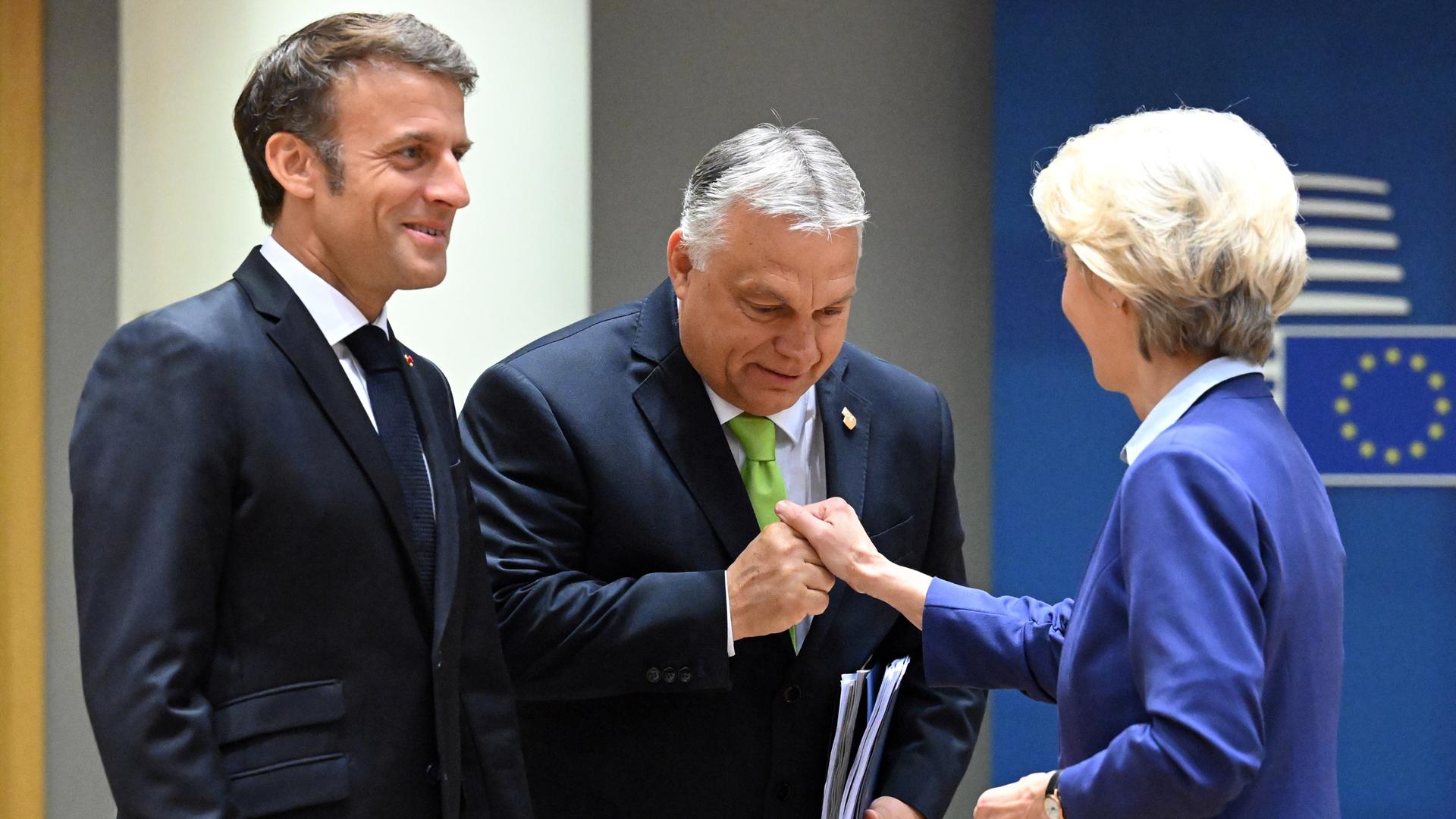
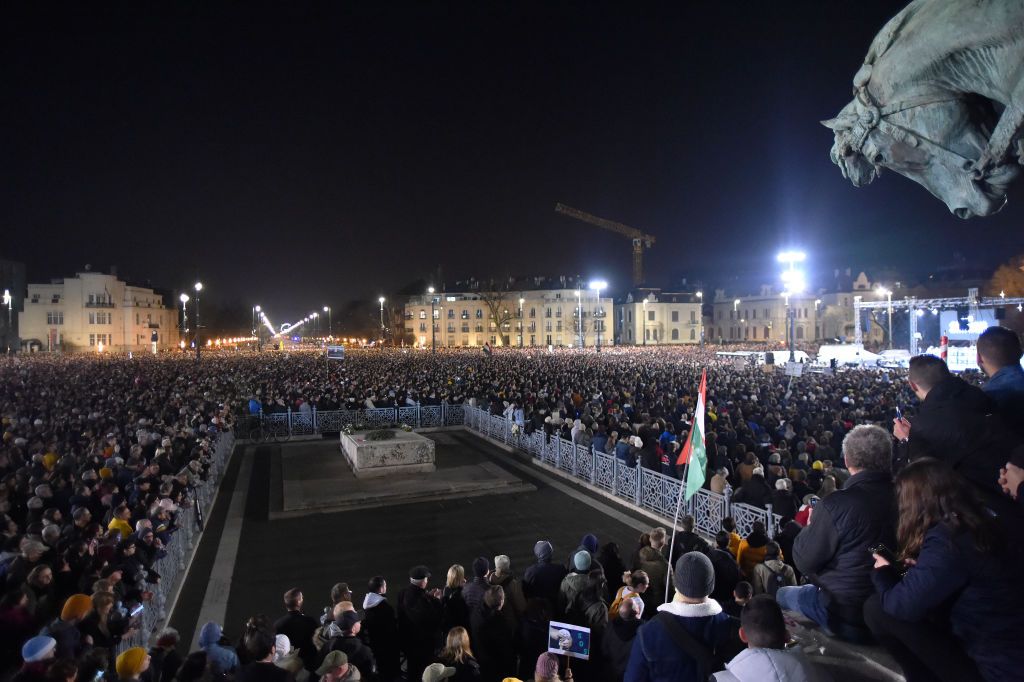
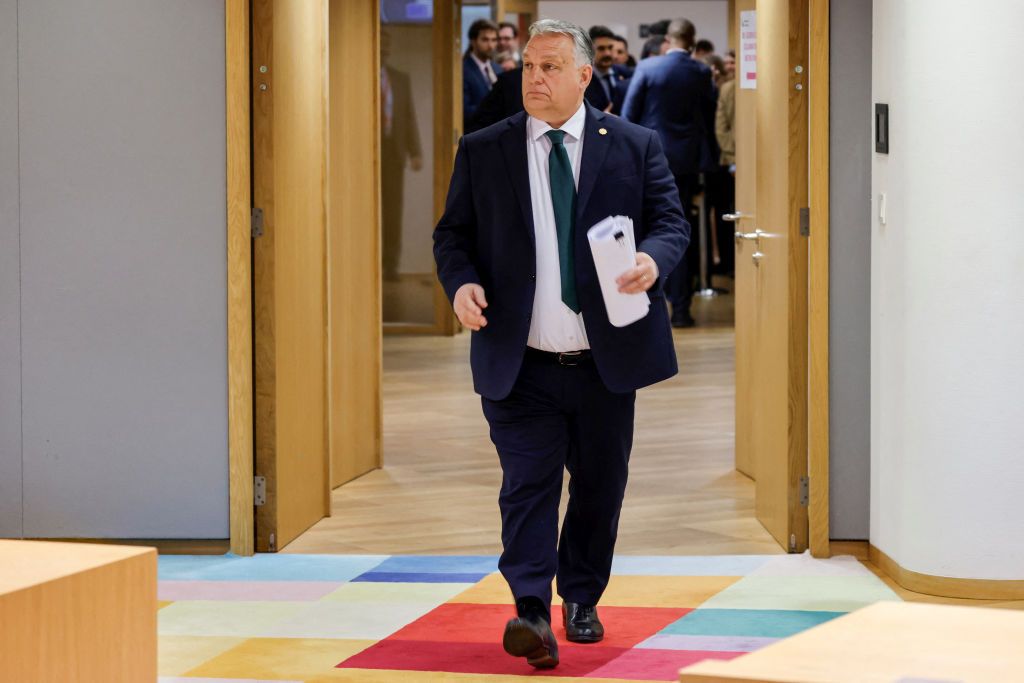



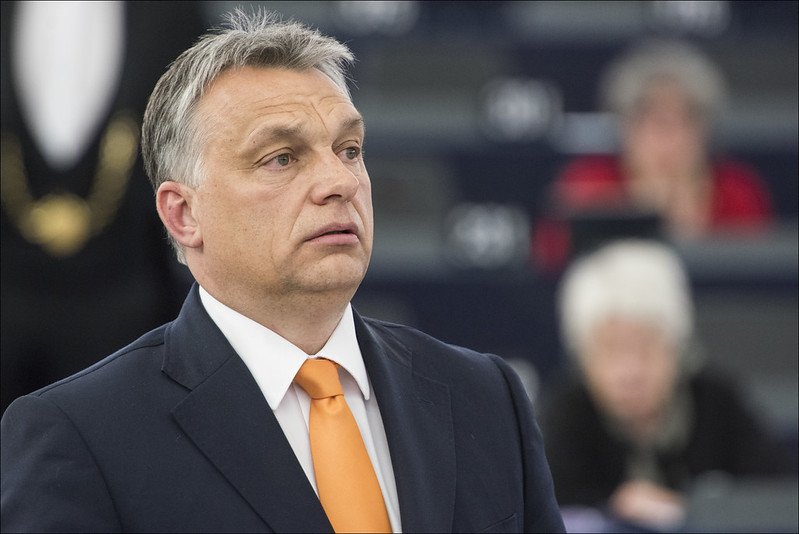
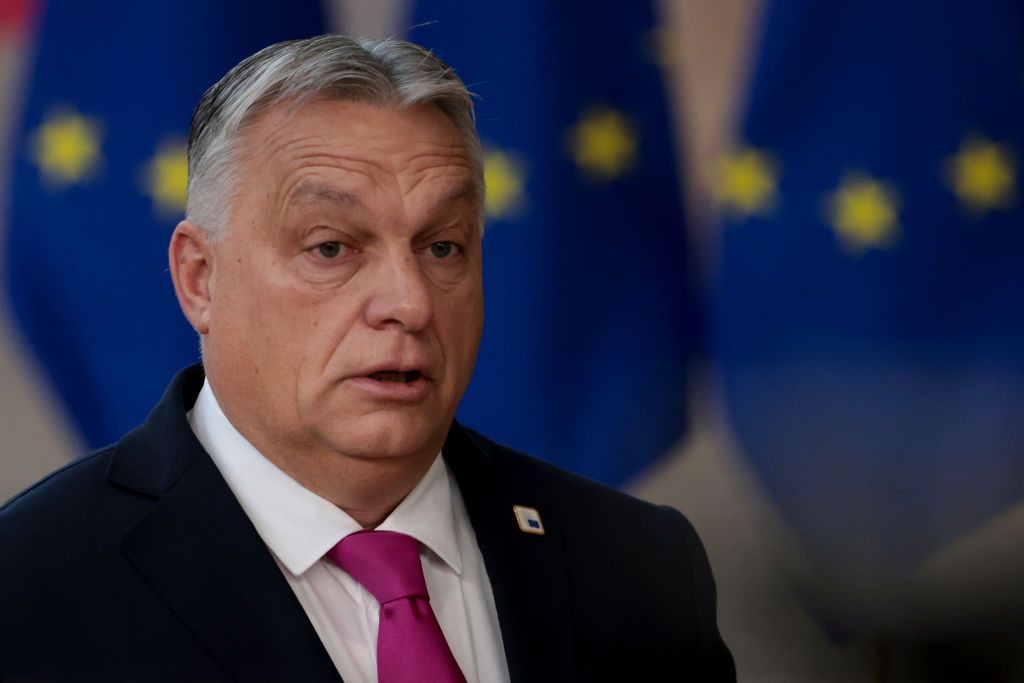
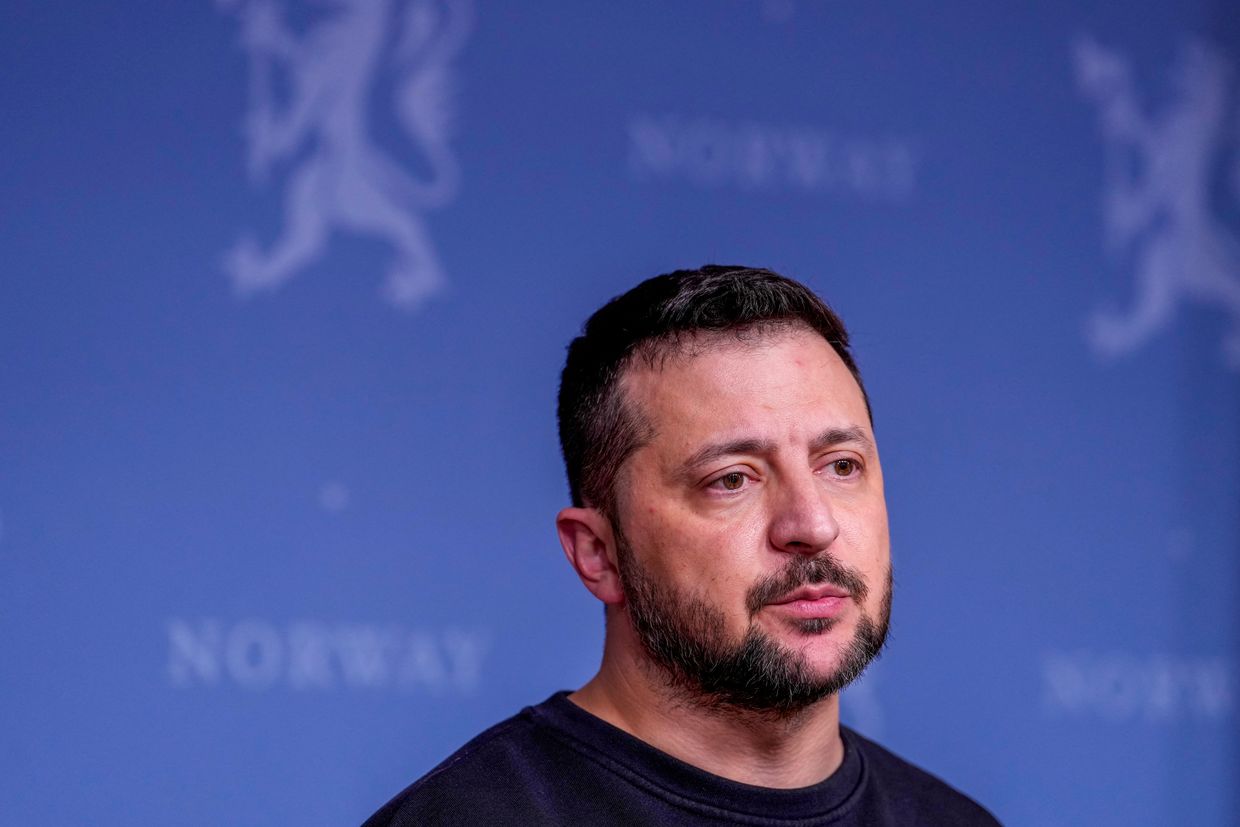
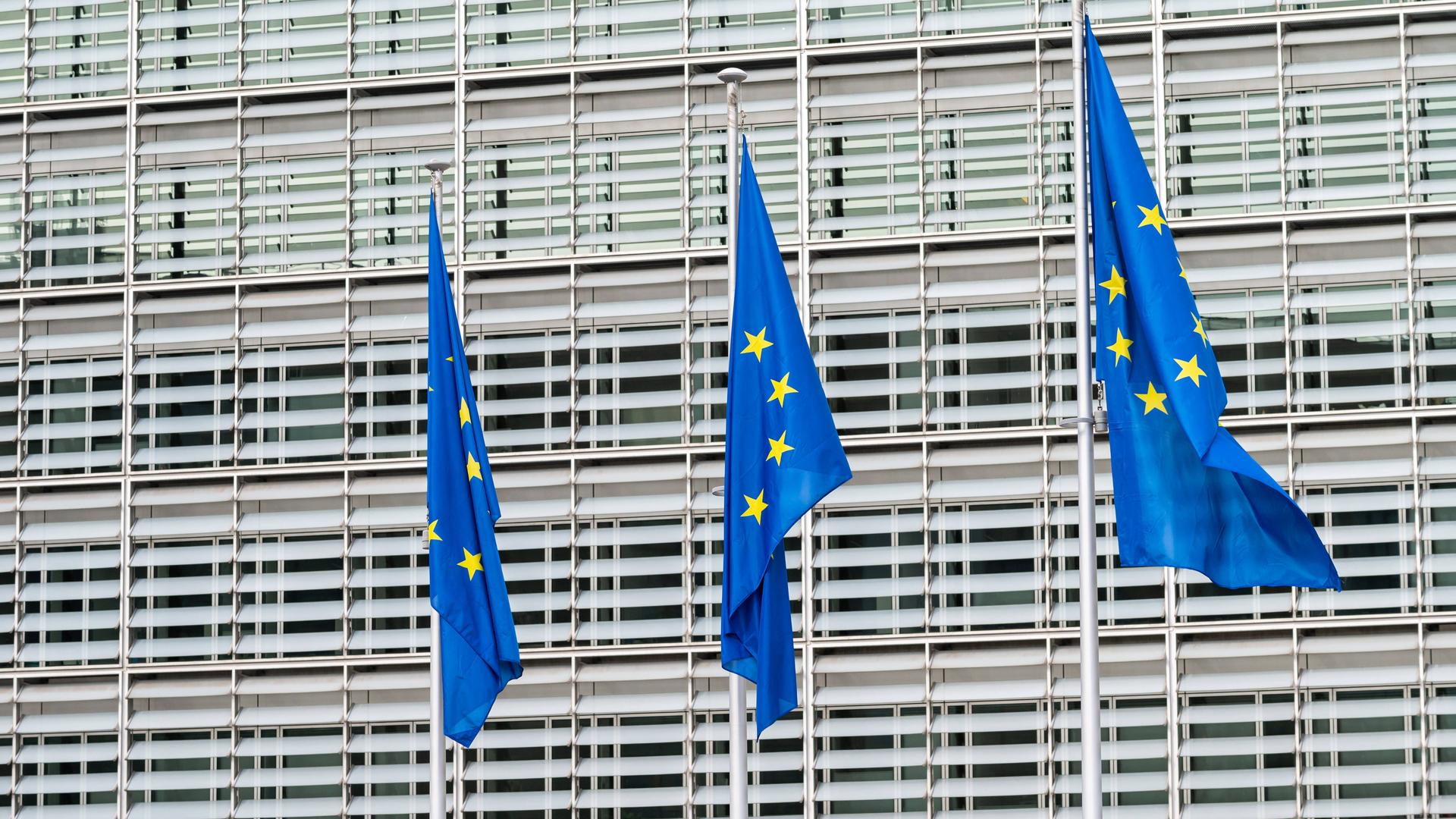
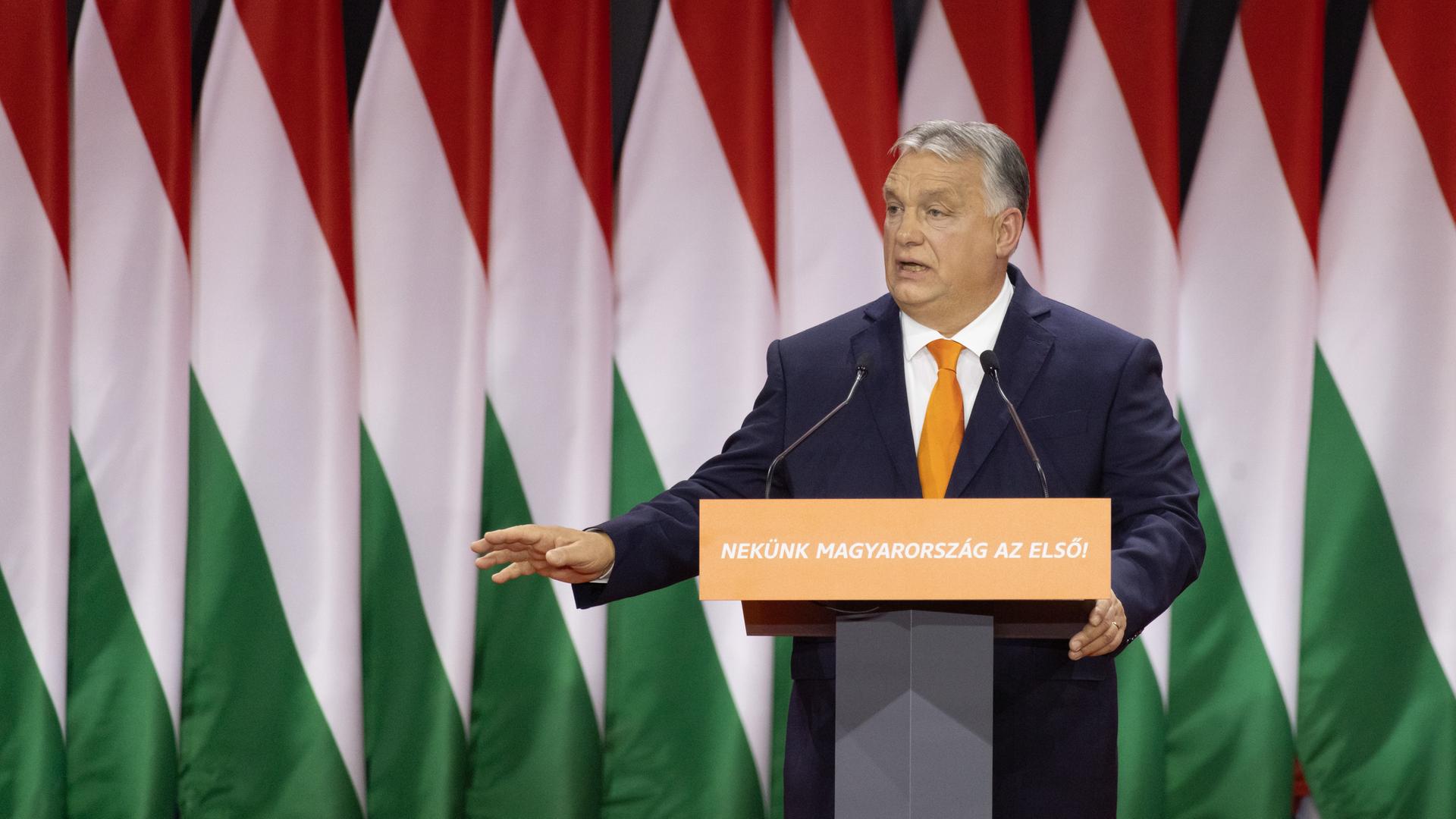
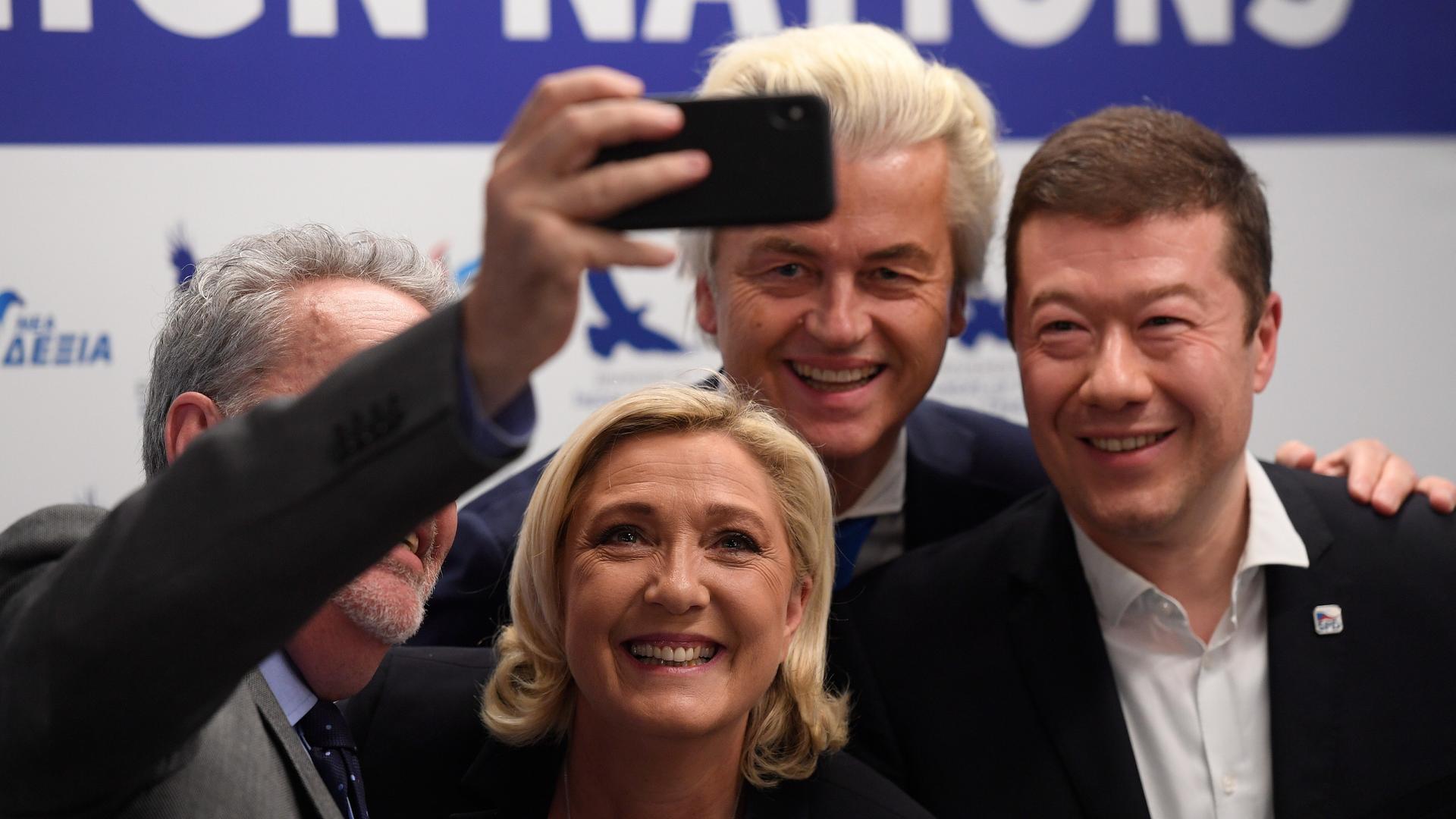

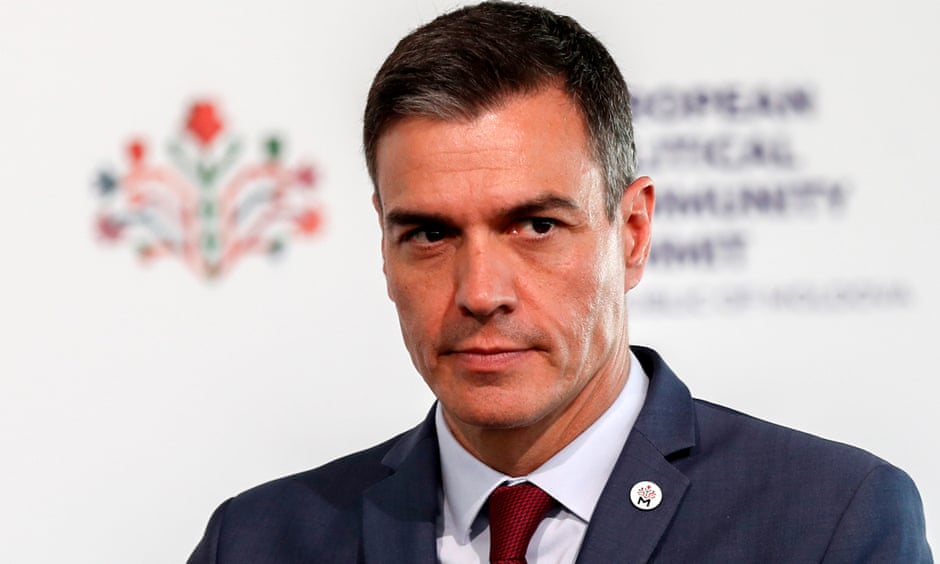

:format(webp)/s3/static.nrc.nl/bvhw/wp-content/blogs.dir/114/files/2019/07/gruyter-caroline-de-2019-01-c.png)
:format(jpeg):fill(f8f8f8,true)/s3/static.nrc.nl/bvhw/wp-content/blogs.dir/114/files/2019/07/gruyter-caroline-de-2019-01-b.png)